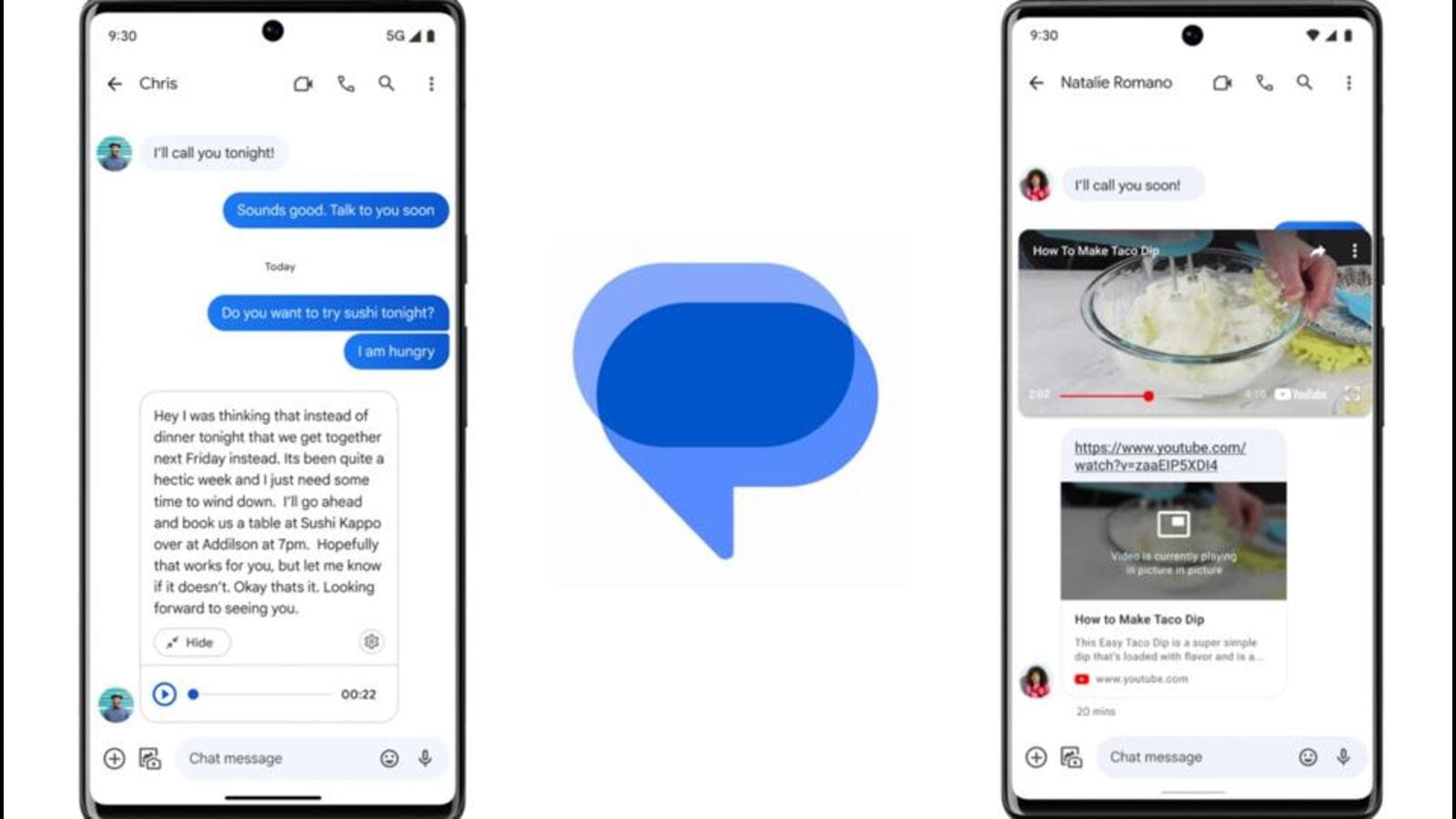Google persists with Messages tweaks while waiting on Apple to accept the invite
Since the turn of the year, Google has made concerted efforts (at least in the public view, on social media) to get Apple on the same page with regard to messaging apps on the two dominant smartphone platforms: Android and Apple’s iOS. While Apple seemingly hasn’t changed stance on an issue it believes users don’t really care about, Google is still making efforts to get Messages work better for communication Android users may have with friends who use iPhones.
Messages bolts on new functionality on Android, regularly
Google Messages app for Android phones will let users respond to individual messages, as replies. The condition here, RCS or the Rich Communication Service standard, must be enabled. Simply put, you should open Messages on your Android phone, go to Settings, and see if ‘Chat Features’ are enabled and active for your phone number.
Jan Jedrzejowicz, group product manager, Messages by Google, points out, “Soon you’ll be able to respond to an individual message in a conversation when RCS is enabled, making it easier to respond to a specific message without breaking the flow.” This feature is rolling out “soon”.
This is, in fact, just the newest addition to Messages. Earlier, Messages adopted the versatility to show the reactions sent from an iPhone, as an emoji, within your conversations. That was followed by the addition of reactions to text messages received from iPhone users, on the Messages for Android app.
Google confirms the Voice Message Transcription feature is being made available on more phones. This will likely be incredibly convenient for converting voice messages to text, if you aren’t a fan of voice messages. This feature, till now, was exclusive to Google’s own Pixel 7 Pro and Pixel 7 flagship phones. Now, it’ll be available on Samsung Galaxy S22, Samsung Galaxy Z Fold 4 as well as the older Pixel phones, namely Pixel 6, Pixel 6A and Pixel 6 Pro.
Messages for Android is also adding the smartness to access finer details such as birthday and anniversary dates from your contacts, and will remind you within the chat, on that day. YouTube links can now also play within the Messages app, for any links shared in conversations – that means you no longer have to switch between apps.
Also Read:Google launches Android 13 (Go Edition) operating system
Apple’s stance: Users don’t care
As recently as last month, just ahead of the keynote where the iPhone 14 series, the Apple Watch Ultra and the second generation AirPods Pro were unveiled, Apple CEO Tim Cook had made it clear the company isn’t focusing on what Google wants – make iMessage on iPhones work in closer sync with Messages on Android.
“I don’t hear our users asking that we put a lot of energy into that,” said Cook, while responding to questions at the 2022 Code Conference.
It is Google’s hope that if Apple adopts RCS as a standard on iMessage, it will eliminate the dreaded ‘Green bubble’ from chats between iPhone and Android users. In the past, Apple is believed to have mulled the idea of an iMessage app for Android phones as well, but as the internal communications that emerged during the Epic trial revealed, that idea was quickly shelved. Apple was worried this would potentially dissolve one of the iPhone’s unique points.
Hiroshi Lockheimer, senior vice president at Google, had tweeted earlier this year, “Apple’s iMessage lock-in is a documented strategy. Using peer pressure and bullying as a way to sell products is disingenuous for a company that has humanity and equity as a core part of its marketing. The standards exist today to fix this.”
Is RCS the point of contention?
The RCS which Google is relying on heavily for Messages, is now a 14-year-old standard. It was created by the GSMA, or GSM Association, in 2008. It does a few things well, such as typing indicators and better image sharing. And as Google has proved since, with reactions and in-app YouTube playback, it can be the foundation for a versatile messaging app.
But then, iMessage on Apple’s devices already ticks off most of this functionality, and a whole lot more.
Secondly, It took a long time for service providers in the US to get on board with RCS. Globally, there are gaps still. It is still not a single toggle activation for all Android Messages users around the world.
There are technological limitations too, considering RCS’s age. Inevitable with something firmed up in 2008. RCS doesn’t support multi-device the way iMessage does. In a way, RCS messages are delivered to an Android phone the feature is enabled on. Not the user account or a user’s ID, which means they would be available to read on any other Android phone or tablet that you may also be using.
Apple’s iMessage syncs the same conversation on all compatible devices you own, if you’re signed in with the same iCloud ID – be it an iPhone, iPad, Mac, Apple Watch, or iPod Touch.
Google predicament: Too much or too little, what is just right?
The reality is that Google finds itself in a predicament because of what has been haphazard positioning, and development of messaging apps over the years. Since Google Talk set things in motion (quite well admittedly), we’ve seen the following, though not in any specific order – Hangouts, Chat, Google Meet, Duo, Allo, Spaces, Google Wave, Buzz, Google+ Messenger, Google Voice, and Messages for Android.
It isn’t a surprise that a lot of them have simply fallen by the wayside since. Even now, the efforts to merge Duo with Meet, are proving to be complicated at best. A ‘Meet (Original)’ app has since emerged, while construction is on in full swing elsewhere. Mind you, that’s happening alongside Messages.
For all the latest business News Click Here


